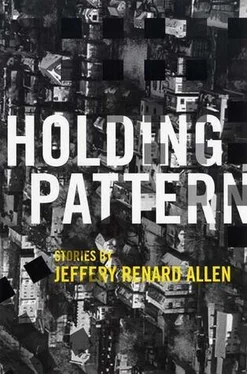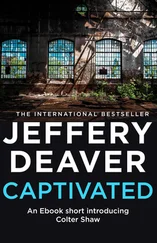“Perhaps I will. All this time, I never knew the university was so close to where she lived.”
“Less than an hour’s drive. Most students hang out and party in Tupelo.”
“Rather than Memphis?”
“Yes.”
“Why?”
“Tupelo is not quite as far.”
“You’ve been to the battlefield at Tupelo?” Dr. Hallard asks.
“No. We do mostly Indian sites.”
“How do you know where to dig? I mean, how do you narrow down a spot?”
“Glad you asked. Let me tell you. We put an infrared camera on a huge helium blimp. Now, this blimp is the size of a basketball court. Bigger. The robotic camera travels along it and pinpoints places where you might find some artifacts. It’s quite amazing.”
“Wow.”
“A blimp, huh?” Me, Hatch, the skeptic.
“Yes.”
I think about it, uncertain if I’m impressed. You have made me glad. At the works of your hands, I sing for joy.
We ride in silence for a while, tires measuring out time. The highway seems inconsequential in this landscape, like a jackknife that can be folded back into its handle. An occasional car or truck creeping down the road like a steel-and-glass insect. Breaks here and there in the tree-jammed roadside, elbow room for squat houses with compact driveways. (No garages.) Every now and then some ragged suggestion of a farm. Cow or horse or chicken or pond or crop — one fact among many in this terrain of the hidden and the seen.
“What kind of winters do you all get down here?” Dr. Hallard asks.
“Oh, mostly rain. Every once in a while we’ll get some snow. Two or three inches hit the ground and everything shuts down.”
Many trees at the margins of the highway are stooped over in fascination at whitening earth, twistings of vine and branch like so many whorls on a fingertip.
“Hey, what do you call that stuff?” Dr. Hallard asks.
“Oh, that’s kudzu.”
“So that’s what kudzu looks like.”
“Yes. They imported it many many years ago.”
“From Japan?”
“I think so. They brought it over to control the spread of rank weed and briar. But it grows like crazy. A month from now it’ll cover everything.”
I press out the image, all of Mississippi wrapped in a kudzu shawl. Justice.
The road gradually rises to a crest I can’t see beyond, then flattens out again. White letters on green metal inform us that the town is two miles ahead.
“You might not know, but tonight is the big night around here. Lots happening.”
“Thursday?”
“Right. I don’t know why, but Thursday is our Saturday.”
“Okay.”
“And you should also know that your hotel is a short walk from the town square. Five minutes. Plenty of restaurants there.”
“What do you recommend?”
“Benjy’s is pretty good. Try their catfish in red-wine sauce.”
“Okay. We’ll keep it in mind.”
Off in the distance I see what appears to be a courthouse with a small yard in front, where a colossal marble pedestal rises some fifty feet above the ground, a bronze soldier mounted there, facing the road to confront all who approach. Closer now, I see a human figure leaning against the pedestal, sharply outlined, in gray coat and black pants, against the stone, this figure shouldering a Confederate flag, black stars patterned into a cross against a dark blue (gray?) background. The rude eyes of witness reveal: a black Confederate soldier.
“What the—? Motherfucker,” I say, unmindful of the crude and cutting edges of my words.
“Yes. He’s caused some controversy.”
I say nothing, for anything I might say seems so much less than what I feel.
The black Confederate is outfitted in a full-length gray coat with a cloaklike attachment, a small, short-brimmed hat — the crown folded over toward his forehead like a scorpion’s stinger — and black jeans and black gym shoes. His flag is attached to a pole no thicker than a broom handle, certainly not military standard or military-issue. An old rusty Boy Scout canteen crosses his chest and waist. His skin is so dark that his fingernails glow like tracer bullets.
“Next month we will be voting on a referendum to remove the flag from the state capitol and all state buildings.” The driver jerks his head toward the Confederate. “He wants them to keep it up.”
“What?”
“Now I’ve seen it all,” Dr. Hallard says.
“Some kind of joke?” I ask.
“I don’t know. All I can say for sure is that he’s caused quite a bit of controversy.”
The driver circles the square, circles the courthouse, circles the bronze statue. I can’t chance a good view of the reb’s face, but he moves his head in our direction, peeps us, and raises the flag higher. Somehow, I feel that we are on display, the three of us in the minivan like some rare species behind glass.
Moments later, we exit the minivan in the hotel’s driveway. I search through my wallet, slide free a five, the biggest tip I can spare, a full two dollars more than what I would normally give.
The town is fighting to keep Applebee’s, Banana Republic, Old Navy, Wal-Mart, and Circuit City out of the courthouse square, where uniform two-story brick-and-wood buildings with verandas perched on ten-foot-high posts house expensive shops and services, bars and boutiques, restaurants and cafés. On Friday nights, book clubs cram into the confined spaces of these shops. The town prides itself on being a literary community and boasts more reading groups than any other municipality in Mississippi. Homes in the immediate radius of the square — rehabbed antebellum structures and their modern imitations — hold the market at a million dollars or more per property. A national magazine recently honored the town with a high distinction, calling it the third-best retirement community in America.
In a small garden left of the entryway to the redbrick cement-lined library, a bronze statue of F. dressed in hat, suit, and tie is seated at the far end of a glazed (green gray) park bench, both taller and larger than F. actually was in life. His legs are crossed at the knees, with his left hand resting on them, right arm across the top of the bench back, so that he is seated at an angle, turned slighty toward the viewer, smoking pipe in (right) hand — a man both relaxed and dignified, inviting the viewer to sit down and join him. Dull metal clothing and skin are set against a fresh bright bed of red tulips and varicolored perennials, directly behind him. A small slim-trunked tree is planted ninety degrees to his right, the leaves either the palest of green or dried to a brown autumn tint and crumpled. And bronze and bench are positioned in the left extremity of a mosaic arc, alternating bands of rectangular red stone and curved green slab.
I continue on to the square’s center, where a small group of white reporters have flocked around the black Confederate, cameras swooping about, pens pecking words onto their notepads, microphones perched in air. From the tone of his voice, I can tell that he is taking a firm stand on the issues, gesturing with emphasis and keeping tabs with his fingers. I take a moment to lock his physical details into memory. The small gray hat has a thin black belt across the front, a tiny gold buckle dead center above the short black visor. With its folded-over crown, the hat reminds me of an old ice bag. (My aunt would unscrew the lid, drop a few perfectly square cubes into the pouch, twist the lid tight, then place the pouch, cold and hard, on a lump.) The ice-bag reb is a man in his early to mid thirties with pronounced cheekbones that form a thick V under each deep-set eye, a nose so compact and modest you might overlook it, and lips no larger than a nickel. He gives me an offhand glance. The camera finds him. He actually stops talking and poses for me, left foot on the curb, left hand positioned on left knee, eyes looking slightly to his right — off camera — flag across his right shoulder. The flag hand also holds a small black disk, a portable CD player, the headphones draped about his red-shirted neck. The shutter moves and emblazons him in celluloid. His damn-fool twin distant and small on a light-catching strip.
Читать дальше












